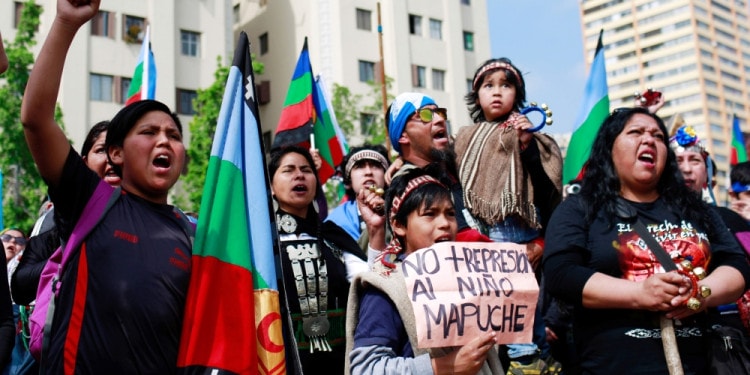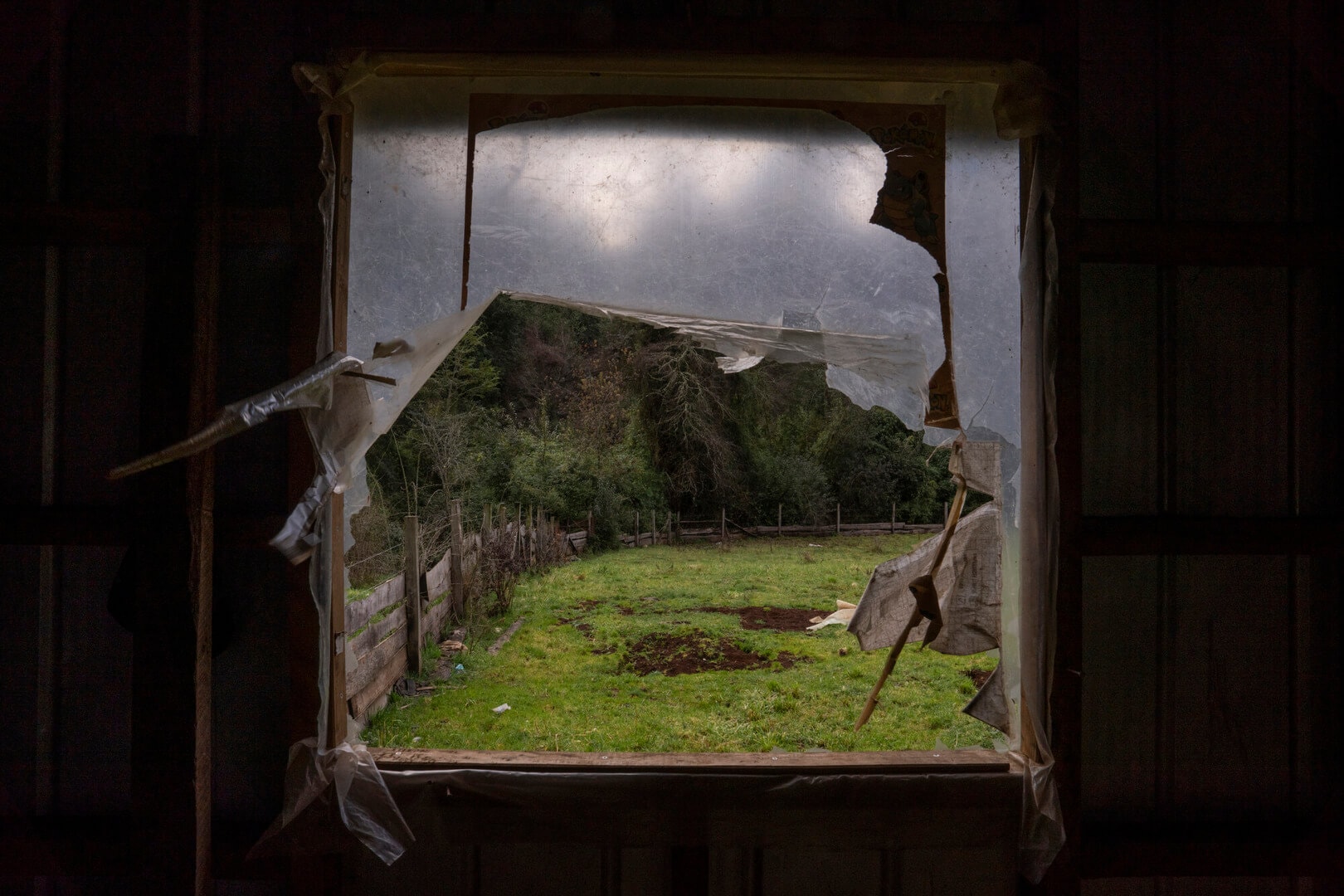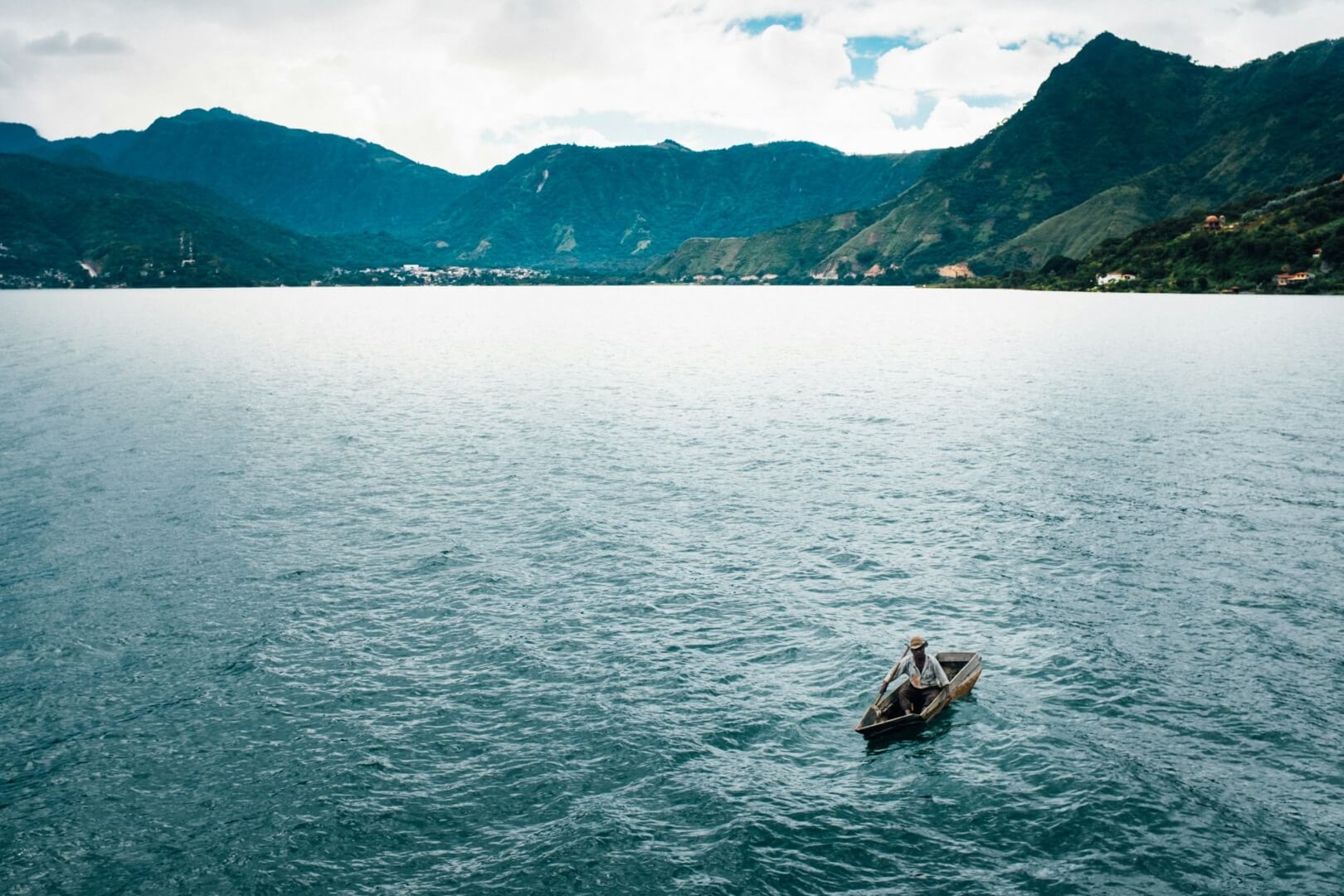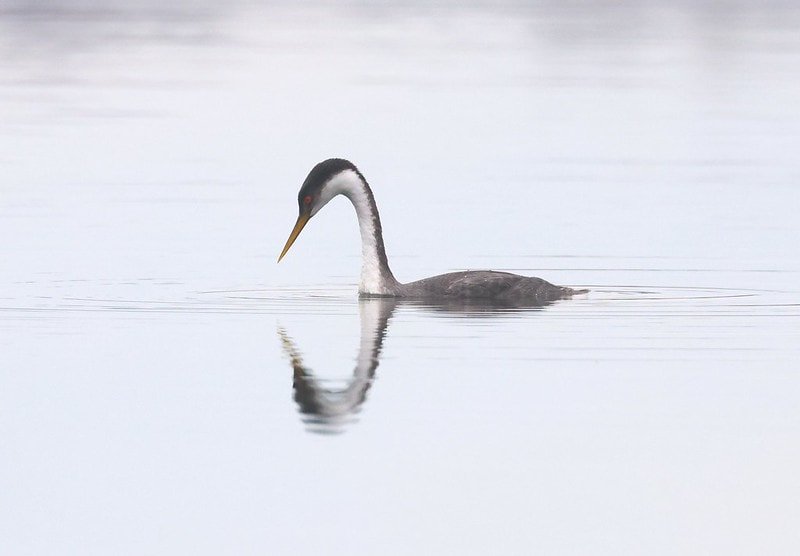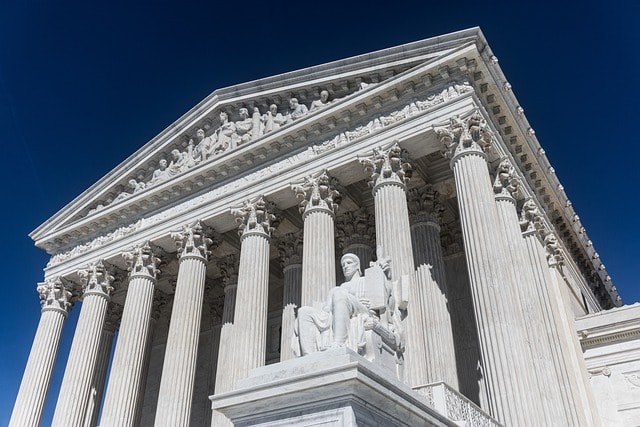The Case of Logko Alberto Curamil and the Alianza Territorial Mapuche perfectly illustrates the harrowing land protection issues facing the Mapuche people in Chile. To understand the case, some background information is needed. First, who are the Mapuche people? They are concentrated in the south-central regions of Argentina and Chile on the locus of their ancestral territory, known as Wallmapu. According to the latest Chilean census, 1,745,147 Chileans are Mapuche, making them 9.9 percent of the national population. More than half of the Mapuche people (59.1%) live in regions that correspond to their traditionally occupied land (e.g. Araucania, Bío-Bío, Los Lagos, and Los Rios Regions), reflecting the inextricable link between Mapuche people and their land.[1]
The main territorial unit within the Wallmapu is called the lof, and the political authority of a lof is the logko. The logko is the decision-maker within his lof and is trusted and respected by his people. He is considered a culturally and linguistically knowledgeable person. Logko Alberto Curamil is the leader of the Radalko lof, which is located in the Municipality of Curacautin in the Araucania Region of Chile.
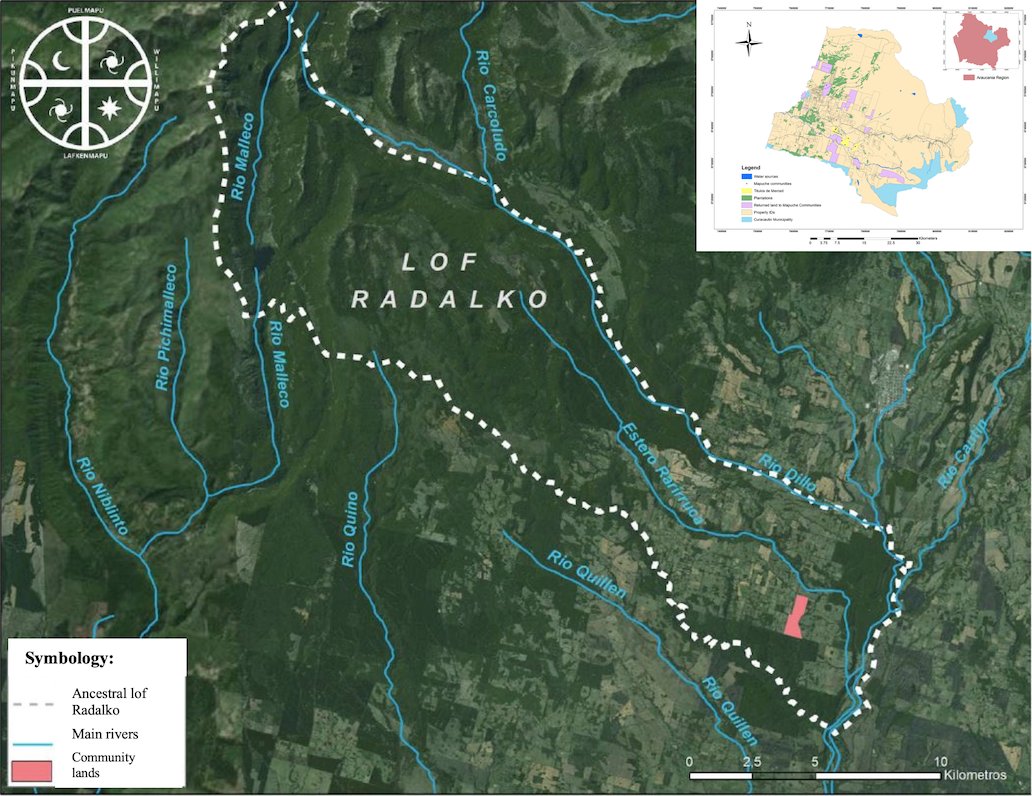
The Alianza Territorial Mapuche (ATM) is one of the grassroots organizations based in Gulu Mapu, the Chilean side of Wallmapu. The ATM’s core mission is the full defence of the Mapuche’s inherent rights, especially concerning the protection of their territory and natural environment. ATM is similar to an NGO in the sense that the organization is not registered under Chilean law. The ATM covers different territories of the Mapuche Nation and is involved in several communities that feel they represent the spirit of the organization.
I have known Logko Alberto Curamil since 2015 when he and his colleague Miguel Melin visited Vancouver, Canada for a series of academic and cultural activities at the University of British Columbia. During this event, Curamil and Melin spoke to a large audience about the struggles of the Mapuche Nation in the group’s long-standing resistance against the oppression of the Chilean state and in the constant threat and exploitation of their natural resources by multinational corporations.
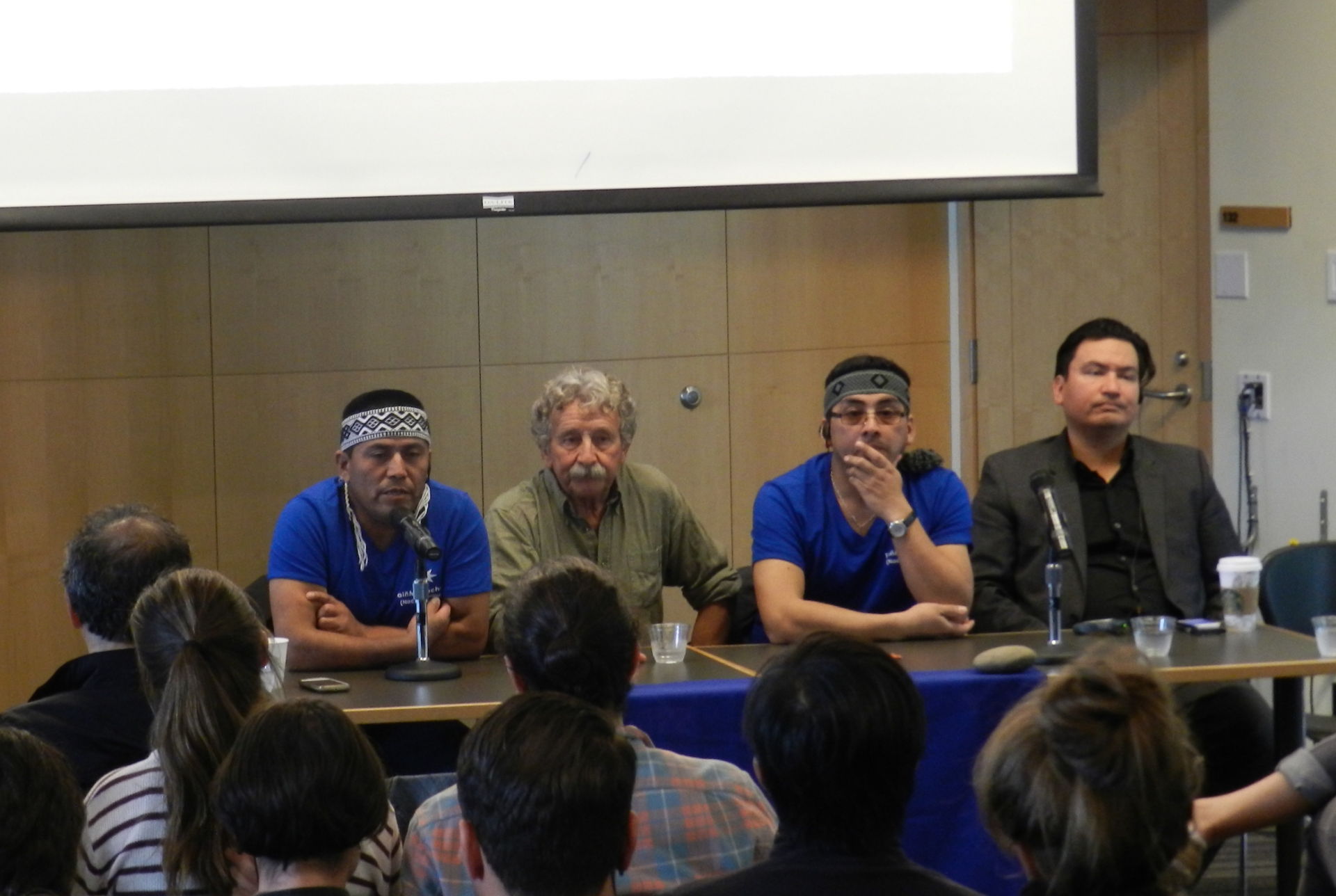
The ATM promotes the revitalization of Mapuche knowledge and the Mapudungun language, the Mapuche’s reconnection to land (in social and spiritual terms) through traditional practices, and the overall reconstruction of the Mapuche nation.[2] In this process of revitalization, the ATM has carried out several projects, including these two relevant books:
AZMAPU: Una Aproximación al Sistema Normativo Mapuche desde el Rakizuam y el Derecho Propio
In this piece, the ATM interviewed several Mapuche elders in the Mapudungun language. Logko Alberto was one of the interviewers as he is fluent in Mapudungun. This book was published in several cities in Chile.
This project involved 4 cultural mapping workshops with Mapuche communities from Curacautin. More than 30 Mapuche people participated in each workshop where they shared stories about their territory. I was lucky enough to participate in these activities which involved entire families, from children to grandparents. When the book was finished, the ATM organized the launch of the book in Curacautin on May 2017, involving all the communities that participated in the project as well as the general public. This event was a big success as more than 100 participants attended. Later on in the same year, the book was presented in Vancouver.
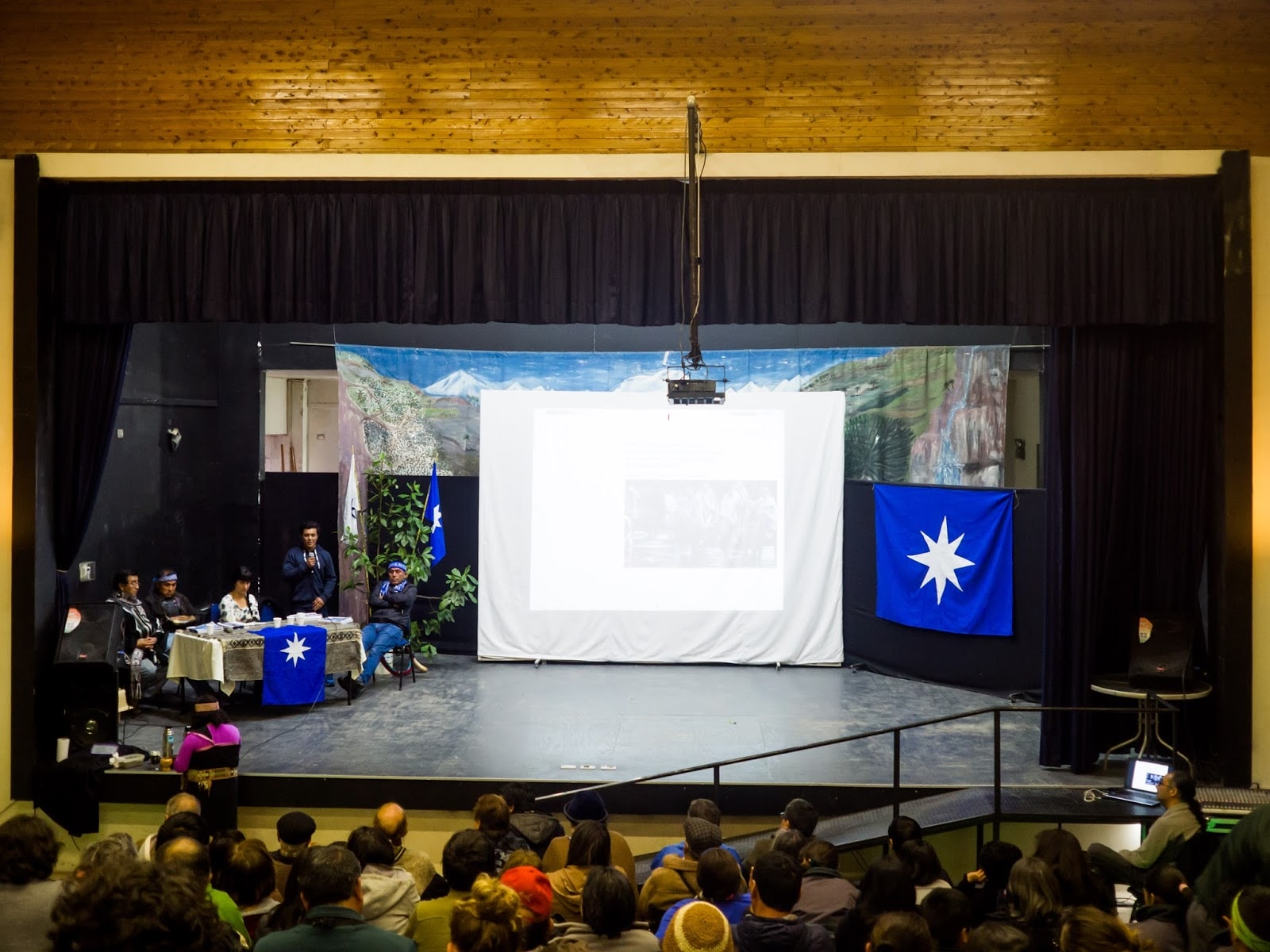
As I already mentioned, I have known Logko Curamil for more than 3 years. During this time, I have been able to witness him in academic, cultural, and family settings. He is a person of strong will and spirit and possesses great knowledge about the Mapuche worldview. As mentioned above, to be a logko, a person not only needs to be knowledgeable and be able to make fair and timely decisions, but also needs to be respectful to all living beings. The following quote portrays the Logko Curamil’s understanding of nature and beyond.
“Well, the land, I think it is a main element for us [Mapuche people], as people, right, because on her we can cultivate, on her we can develop ourselves. For instance, on the economic aspect, in every aspect regarding our survival. On the other hand, as Mapuche, from the cultural point of view, the land is a sacred element for us, in which there are many spaces we owe respect, and of course, consecrate those spaces that sustain our life” (Logko Alberto Curamil, 2016)
In his role as a traditional authority, Logko Caramil has always been willing to speak on matters related to the Mapuche Nation. For instance, during May 2018, he participated in a discussion panel at the University of La Frontera, Chile. This panel was one of his last public appearances before he was unjustly incarcerated in August 2018.
Additionally, during this event, I helped present the results of collaborative research carried out in the Mapuche territory.
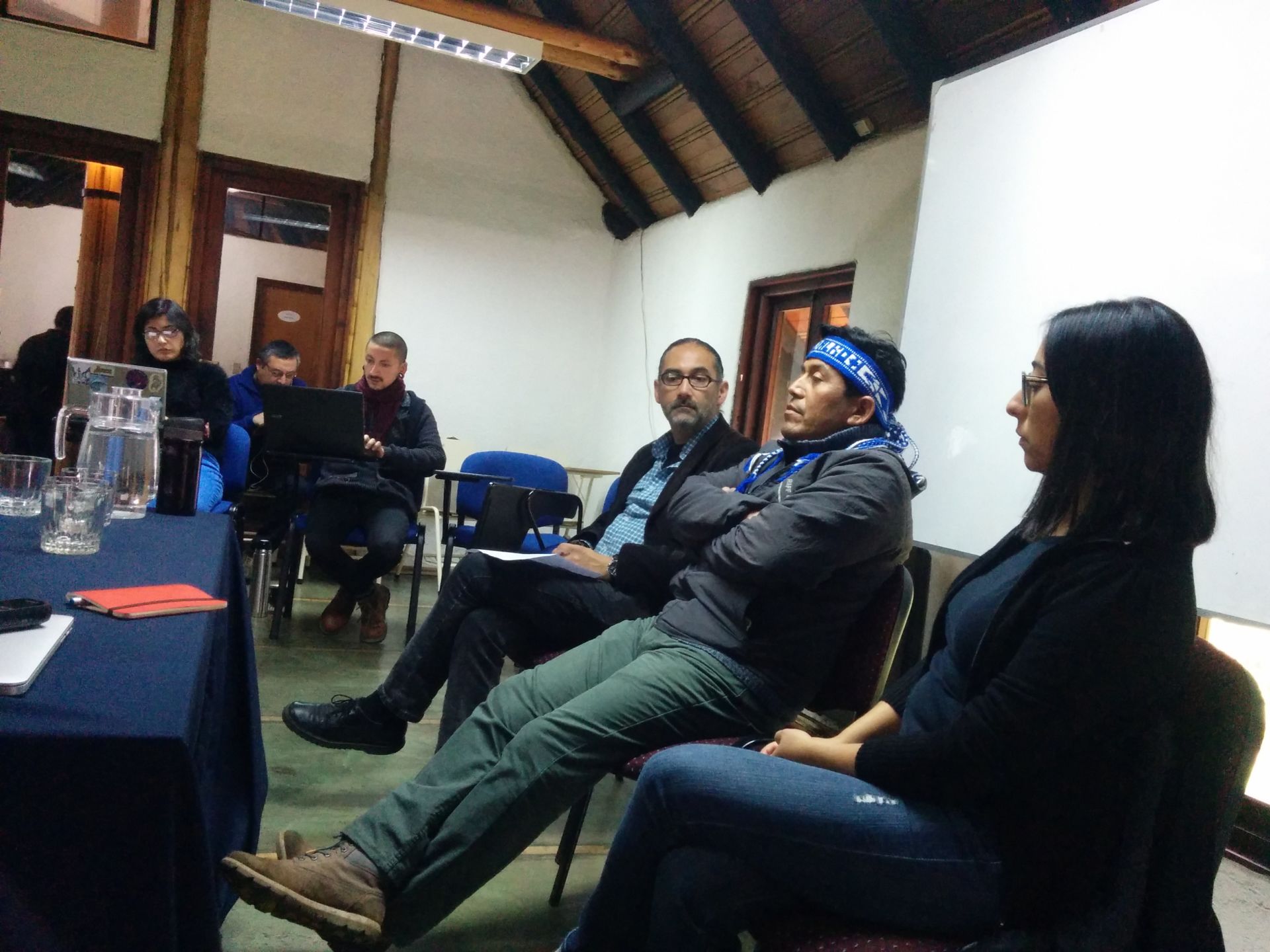
Alberto has been a staunch defender of the Mapuche territory against multinational hydroelectric and forestry companies. His successful work in uniting the Mapuche and non-Mapuche communities of Curacautin to fight against the construction of a hydroelectric project on the sacred Cautin river in 2014, made him the recipient of the 2019 Goldman Environmental Prize for South and Central America. However, he could not attend the award ceremony in person as he is still in prison for a crime he did not commit. Instead, his daughter, Belen Curamil, received the prize on his behalf.
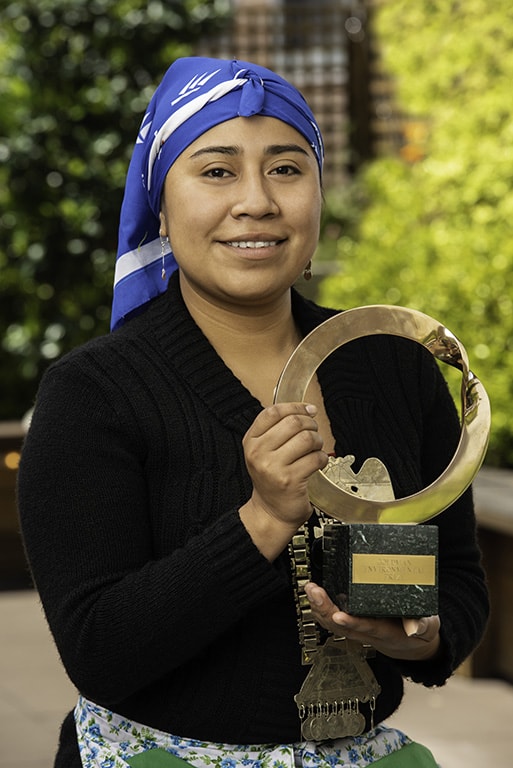
In the last weeks before Logko Curamil was arrested, he contributed to the cause of the Machi Celestino Córdoba, another traditional authority that had been incarcerated by the Chilean State. Essentially, Logko Curamil is a nuisance to both the government and environmentally detrimental corporations. The government’s response to leaders who get in their way like Alberto is to prosecute and unjustly incarcerate them so that they cannot continue their activism. The Chilean government’s incarceration of Logko Curamil is instrumental in dismantling the reconstruction of the Mapuche Nation.
Additionally, with Logko Curamil still in pre-trial incarceration after 15 months, this past September the Chilean government approved another hydroelectric project. The Central Hueñivales power plant is to be constructed on the Cautin river despite the large opposition of Mapuche communities.
From my own research, I have learned that communication with Mapuche communities is difficult given the constant persecution of their leaders by the Chilean judicial system and police forces. Police forces tap into leaders’ phones and constantly raid different Mapuche communities. Thus, many leaders are difficult to get in touch with as they barely use their cell phones, and visiting communities in person is not an option as raids by the Chilean police are particularly violent and do not differentiate between adults, kids, women or elders, Mapuche or non-Mapuche, and therefore are extremely dangerous.
Editor’s Picks:
My Truth, Your Truth, Their Truth, and “The” Truth
A Human Rights Crisis: Political Prisoners in Venezuela
Post-Conflict: The Mass, Systematic Killings of Social Leaders in Colombia
In fact, Mapuche leaders have been murdered in cold blood during raids. This is true in the case of Camilo Catrillanca from Temucuicui lof who was murdered by the Chilean police on November 14, 2018. As a result of events such as this one, many communities are hesitant to let outsiders into their lof. Therefore, I had to rely a lot on the support of the ATM to complete my research. This collaboration was helpful in identifying key actors in the field as well as in identifying Mapuche communities that were experiencing different levels of conflict over access to land and that were simultaneously suffering from the impacts of climate change (e.g. water scarcity).
As I have discussed above, the approach of the government towards the Mapuche has been violent and inhumane. It has constantly violated the rights of Mapuche people despite Chile’s status as a signatory country of the United Nations Declaration on the Rights of the Indigenous Peoples (2007), and the International Labour Organization Convention 169 of 1989, which was only ratified in 2008. Rather than staying true to these international declarations, the Chilean government continues its militarization of Mapuche territory. In this Twitter moment, I have compiled information regarding the militarization of the Araucania. Furthermore, Chile, the organizer of this years’ 25th session of the Conference of the Parties is currently one of the few South American countries that has refused to sign the Escazu agreement.[3]
In the case of Logko Curamil, the State of Chile is the main opposition and demands that he serve a sentence of 50 years, even though it is widely known that Lokgo Curamil is innocent. At the moment of the robbery he is being accused for, he was at a different location meeting with other members of the ATM.
The validity of Logko Alberto Curamil and the ATM is supported by their actions. There is plenty of documentation of their amazing endeavour to revitalize the Mapuche nation through knowledge, culture, language and respect for all living things.
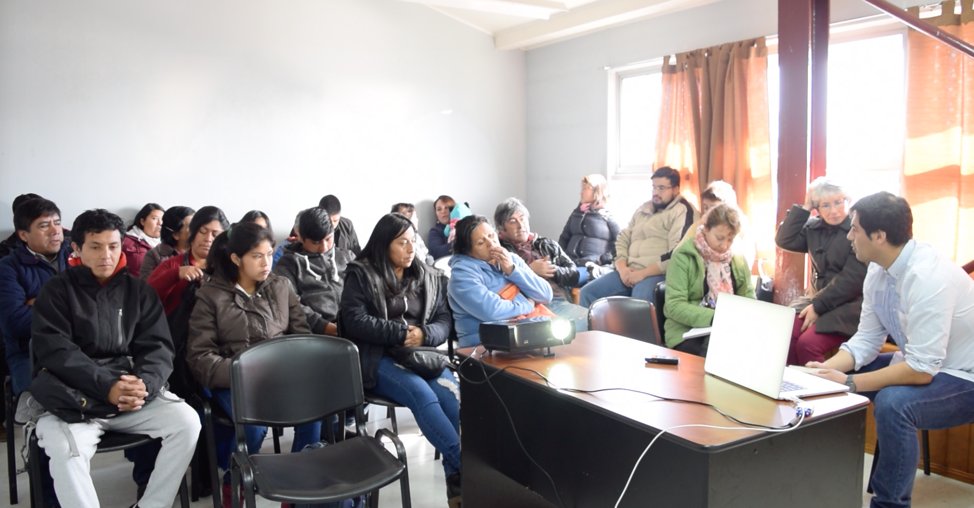
There is so much knowledge in the Mapuche worldview concerning nature and the roles of all its components (including humans), that could inform new strategies to cope with the impacts of climate change. Unfortunately, they are ignored. In fact, participation of Mapuche people, and Indigenous peoples in general, at the COP25 is minimal despite the knowledge they could provide.
The oral trial against Logko Alberto is finally starting on October 21st 2019 and will last more than 20 days. I urge the Chilean government to free Logko Alberto Curamil, to end the militarization of the Mapuche territory, and to sign the Escazu agreement before COP25 takes place in Santiago, Chile. The government must commit to a better understanding with the Mapuche Nation and all the environmental activists in Chile. The release of Logko Curamil would not only be a recognition of all his efforts in defending the rights of his people but would be a vindication of Indigenous rights in Chile. Moreover, the signing of the Escazu Agreement would send a strong message to Chilean and international society that Indigenous peoples are the real land protectors and that our future as a society depends on their wellbeing.
Editor’s Note: The opinions expressed here by Impakter.com columnists are their own, not those of Impakter.com.
Featured Image — In the photo: Mapuche protesters defending their right to their land. — Photo Source: Al Jazeera
Cited work
CEPAL (2012) Desigualdades territoriales y exclusión social del pueblo mapuche en Chile: Situación en la comuna de Ercilla. Santiago, Chile.
Melin, M., Mansilla, P. and Royo, M. (2017) Mapu Chillkantukun Zugu: Descolonizando el Mapa del Wallmapu, Construyendo Cartografía Cultural en Territorio Mapuche. First edit. Edited by Pu Lof Editores ltda. Temuco, Chile.
Footnotes
[1] CEPAL (2012) Desigualdades territoriales y exclusión social del pueblo mapuche en Chile: Situación en la comuna de Ercilla. Santiago, Chile.
[2] The internal colonization carried out by the Chilean state after the Independence (1818) over the ancestral territories of the Mapuche Nation was brutal in two main aspects. First in terms of land, as it was dramatically reduced to small reservations of less than 100 has. Second in terms of their culture, language and spirituality.
[3] “It addresses key aspects of environmental management and protection from a regional perspective, regulating access rights to information, public participation and justice in matters as important as the sustainable use of natural resources, biodiversity conservation, the fight against land degradation and climate change, and building resilience to disasters. It also includes the world’s first binding provision on human rights defenders in environmental matters in a region where sadly they are all too often subject to attacks and intimidation” (https://www.cepal.org/en/escazuagreement)


